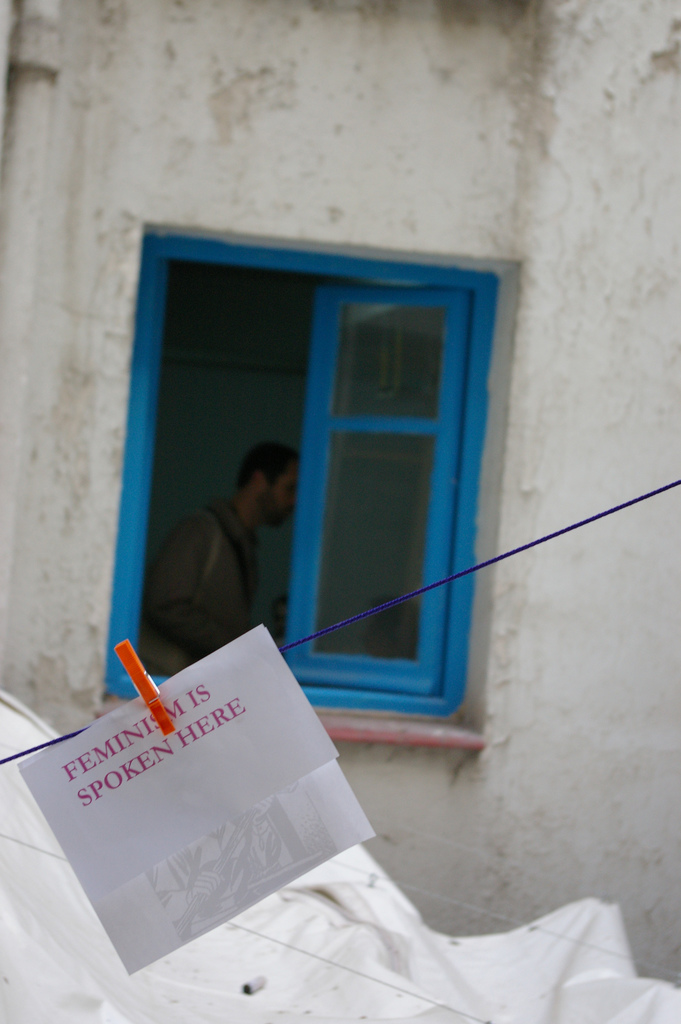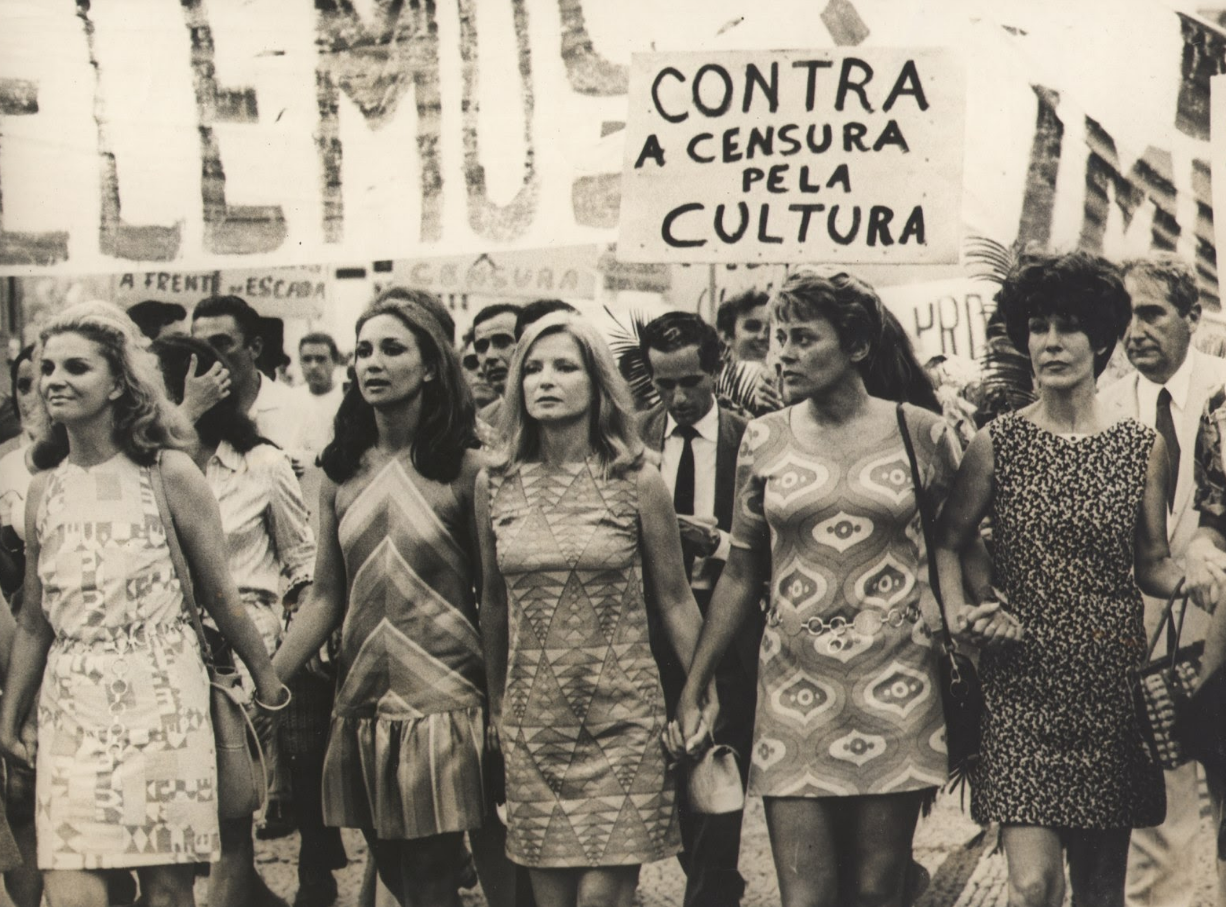
Big Girls Don’t Cry: The Election That Changed Everything for American Women by Rebecca Traister is a thorough analysis of the roles women played in the groundbreaking election cycle of 2008. Traister examines the actions and impact of all the obvious participants, including Hillary Clinton, Sarah Palin, and Michelle Obama, as well as those whose contributions to the election process are often overlooked, such as Katie Couric, Tina Fey, Elizabeth Edwards, and many others.
Traister examines and explains in a new light the causes and implications of everything from Clinton’s failed campaign to Katie Couric’s interview with Sarah Palin. By discussing her own experiences as a young feminist, Traister provides a view of the election that is strongly compatible with and directed towards this generation. She emphasizes the generational discord that permeated the various campaigns and defends against the attacks of political ignorance and disinterest often leveled at young people. Also, while Traister clearly states her partisan views, the book provides a refreshing look at the elections that someone of any partisan standpoint could find interesting.
Traister explains Clinton’s win in the New Hampshire primary in a particularly interesting way. This completely unexpected win in New Hampshire occurred immediately after Clinton’s supposed crying jag, when her voice broke and her eyes welled up while she was answering a supporter’s personal question, “How do you keep upbeat and so wonderful?” Many media figures and politicians, especially men, insisted she had been hysterically sobbing and promptly began reveling in what they felt to be Clinton’s imminent downfall. Traister carefully describes how after this uproar, many women hoped Hillary would win not simply because she was a woman, but instead because they were so appalled by the horrible treatment some politicians, members of the media, and other misogynist opponents subjected her to. Traister puts it perfectly in saying, “those who were roused to Clinton’s defense were roused not because she was a girl, but because she was being treated like one.” The point here, like most of the analysis in the book, seems so obvious, and yet it is rarely considered in mainstream discourse. Traister always goes one step further in her analysis than much of the mainstream media and provides clever new explanations for events that the media has widely covered but seldom fully explained.
After reading Big Girls Don’t Cry, I was fortunate enough to have the opportunity to sit down and talk with Ms. Traister when she came to Northeastern to speak about her book.
What do you think about Palin’s continued presence in the media? … I don’t make any bones about my partisan commitment, so I disagree with Sarah Palin on every single possible topic. However, I do think that she represents some of the changing roles for politicians… There was an enormous amount of conventional wisdom that said if a woman was going to run (not that there was a real model for this)… she should hide her femininity. And when Hillary did that, it didn’t work out so well for her… Palin has defied every bit of conventional wisdom by everything she’s done… Historically, to quit your gubernatorial term halfway through means the end of your political career. And here we are a year later, and she’s the person most people want to talk about…. She’s utterly unpredictable; she’s absolutely as advertised ‘maverick-y’… It’s totally remarkable… One of the things we have to come to grips with- and this is a really important issue- is that when you’re shut out of power… you get to come up with a big fantasy about what [having a female leader] would be like… Those expectations for perfection really got in the way of Hillary running… we wanted women to be better. And in fact, if we were going to get closer to actual political parity, which is still way down the road, what we’re going to have to come to grips with is that female candidates are going to come in just as many varieties as male candidates… And in some ways, having figures like Palin and O’Donnell… this is part of what it’s going to look like if we actually one day do have political equality, gender equality in politics.
If you were editing or writing this book again, now, what would you add or change? … [I think I] would’ve amplified something that I’ve been feeling a lot recently, which is my own disappointment in the Democratic Party for not better addressing its women and better offering something to compete with the Mama Grizzly, ‘We’re the party of women’ narrative that’s being thrown out there by the Republicans in a total rebranding/marketing ploy designed to address a gender gap. You know, because women vote for Democrats way more often than they vote for Republicans. And so the Republicans are trying to dress themselves up as the party of women, and this is completely false on a million levels: policy, ideology, numbers… This crazy Republican notion that somehow the Republicans are the party of women, and Democrats, who have a female base, who have tons more female elected officials, are not saying, ‘Wait a minute.’ They’re not presenting themselves as they could be. They’re not saying, ‘We’re the party that passed the Lilly Ledbetter legislation, we’re the party that made being a woman not a preexisting condition in healthcare.’ They’re not promoting their female candidates. They’re not throwing their money, support, and the spotlight on female candidates… Because [Democrats have] been labeled the ‘female party,’ and they understand this not to be a compliment- the ‘mommy party’… they’re constantly trying to masculinize themselves. And right now I feel that… there’s an appetite for female leadership, an appetite for rhetoric about empowering women. This is a changing country, and the Democrats are totally missing the boat…
Big Girls Don’t Cry summarizes Clinton’s position throughout the primaries, stating that “like Harry Potter’s Hermione Granger or Margaret from Dennis the Menace, Hillary was being portrayed as the hand-in-the-air, know-it-all girl, grating and unpopular in her determination to prove herself.” This really sums up a hard-to-place but aggravating phenomenon. So often, in so many different situations, the cool new guy who just waltzed onto the scene beats the smart, well-qualified girl who really wants the job. This demonstrates yet another example of Traister’s ability to provide clever analysis and connect with her audience, especially in the younger generation. It’s hard to imagine an older political analyst comparing a politician to a character from Harry Potter, and yet when Traister does so, it makes perfect sense. Analysis provides the basis of the book, but Big Girls Don’t Cry is prevented from becoming just another polemic by providing a fresh and contemporary take on America’s politics. What really sets Big Girls Don’t Cry apart in a completely new way is that this youthful point of view actually allows young people to identify with Traister, with politics, and with feminism in new and clever ways.


